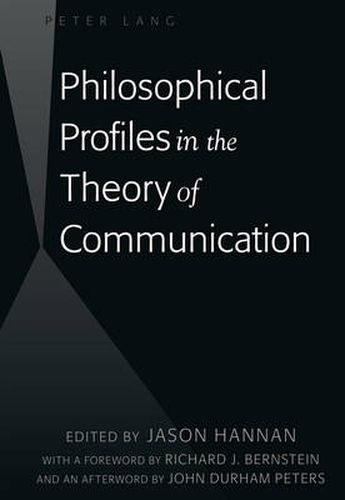Readings Newsletter
Become a Readings Member to make your shopping experience even easier.
Sign in or sign up for free!
You’re not far away from qualifying for FREE standard shipping within Australia
You’ve qualified for FREE standard shipping within Australia
The cart is loading…






Philosophical Profiles in the Theory of Communication is the first book to draw systematic attention to the theme of communication in twentieth-century academic philosophy. It covers a broad range of philosophical perspectives on communication, including those from analytic philosophy, pragmatism, critical theory, phenomenology, hermeneutics, feminism, psychoanalysis, systems theory, and more. What emerges is a vital, long-neglected story about the theme of communication in late modern academic philosophy. Each chapter features a profile of a particular philosophical figure, with a brief intellectual biography, an overview of that figure’s contribution to communication theory, and a critical assessment of the significance of that contribution. The clear and accessible organization of the volume makes it ideal for courses in both philosophy and communication studies.
$9.00 standard shipping within Australia
FREE standard shipping within Australia for orders over $100.00
Express & International shipping calculated at checkout
Philosophical Profiles in the Theory of Communication is the first book to draw systematic attention to the theme of communication in twentieth-century academic philosophy. It covers a broad range of philosophical perspectives on communication, including those from analytic philosophy, pragmatism, critical theory, phenomenology, hermeneutics, feminism, psychoanalysis, systems theory, and more. What emerges is a vital, long-neglected story about the theme of communication in late modern academic philosophy. Each chapter features a profile of a particular philosophical figure, with a brief intellectual biography, an overview of that figure’s contribution to communication theory, and a critical assessment of the significance of that contribution. The clear and accessible organization of the volume makes it ideal for courses in both philosophy and communication studies.